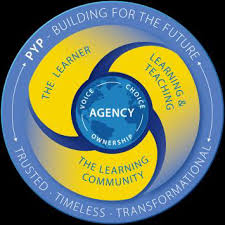PYP for parents
Designed for students age 3-12, the IB Primary Years Programme (PYP) provides the knowledge, concepts, skills personal attributes and the capacity to take action, all of which younger students need to equip them for successful lives, both now and in the future.
Learning through inquiry, a child’s investigations across and beyond subject areas will strengthen knowledge and understanding as they explore global, topical and relevant ‘big picture’ questions, or transdisciplinary themes.
Student-Centred learning
The PYP provides an ideal foundation for children to become successful, lifelong learners by developing their:
- social and emotional well-being
- independence, as they take responsibility for their own learning
- international mindedness
- understanding of the world and their ability to function effectively within it
- attitudes and dispositions for learning
- ability to take mindful, appropriate and sustainable student-initiated action
- language skills; all students study an additional language from at least 7 years of age.
Learning in the PYP is underpinned by six transdisciplinary themes, each selected for their relevance to the real world. Young learners explore the commonalities of human experience by investigating these themes through a programme of inquiry.
Who we are
Inquiry into the nature of the self; beliefs and values; person, physical, mental, social and spiritual health; and human relationships.
Where we are in place and time
Inquiry into our orientation in place and time; personal histories; the discoveries and explorations of humankind; and the interconnectedness of individuals and civilizations.
How we express ourselves
Inquiry into the ways in which we discover and express ideas, feelings, nature, culture, beliefs and values.
How the world works
Inquiry into the natural world and its laws, the interaction between the natural world and human societies; the impact of scientific and technological advances on society and on the environment.
How we organize ourselves
Inquiry into the interconnectedness of human-made systems and communities; the structure and function of organizations; and their impact on humankind and the environment.
Sharing the planet
Inquiry into rights and responsibilities in the struggle to share finite resources with other people and other living things; access to equal opportunities; and peace and conflict resolution.
The Exhibition
The exhibition is an extended, in-depth project celebrating the culmination of a child’s learning experience in the PYP before they move on to the next stage in their education.
Young learners conduct an in-depth inquiry into real life issues or challenges, and present their research, investigation and resulting action to the whole school community.
Recent research into the impact of the PYP exhibition found it to be a “valuable and pivotal experience in the life of the schools, families and students who were involved.”
Success with the PYP
Learning in the PYP is viewed as a continuous journey; teachers work with students to identify their needs and then document, monitor and provide ongoing assessment and feedback to plan the next stage of their learning.
A recent study asked parents and educators how they defined success with the PYP. Educators cited enhanced student learning outcomes, a shared vision of learning within their school, focused decision making, and increased international mindedness in the school community.
In another recent study, PYP educators showed a commitment to using inquiry methods as a key pedagogical approach, and understood how to promote transdisciplinary themes and their exploration. To do this, these PYP schools adopted a variety of thinking tools in their classroom to engage students.
How does the PYP in the early years compare to other early childhood learning approaches?
The PYP framework is compatible with many other early childhood learning approaches including Montessori, Reggio and Waldorf.
Relationships, play, symbolic expression, learning environment and learning experiences are important components for learning in the PYP and many early childhood programmes. The PYP also provides the added dimension of international mindedness within a quality assured and research informed framework for early learners.
Will teaching the PYP differ at International schools and State schools?
A child’s learning experience may differ depending on the mission and aims of each school and their unique identity and context. However, a school’s ethos will reflect the IB mission to create a better and more peaceful world through intercultural understanding and respect and their approaches to learning and approaches to teaching will meet the high expectations of IB standards and practices.
As a global framework, goals from other curricula can be aligned within the programme although key concepts will remain the same. Schools that implement a national, regional, state or other curriculum of choice will ensure alignment to the PYP framework.
Quality assurance
Implementation of the PYP is a transformative experience for students, schools and the wider learning community. Professional development for teachers together with a rigorous process of authorization and regular evaluation ensure that IB World Schools deliver the best possible education for PYP students
